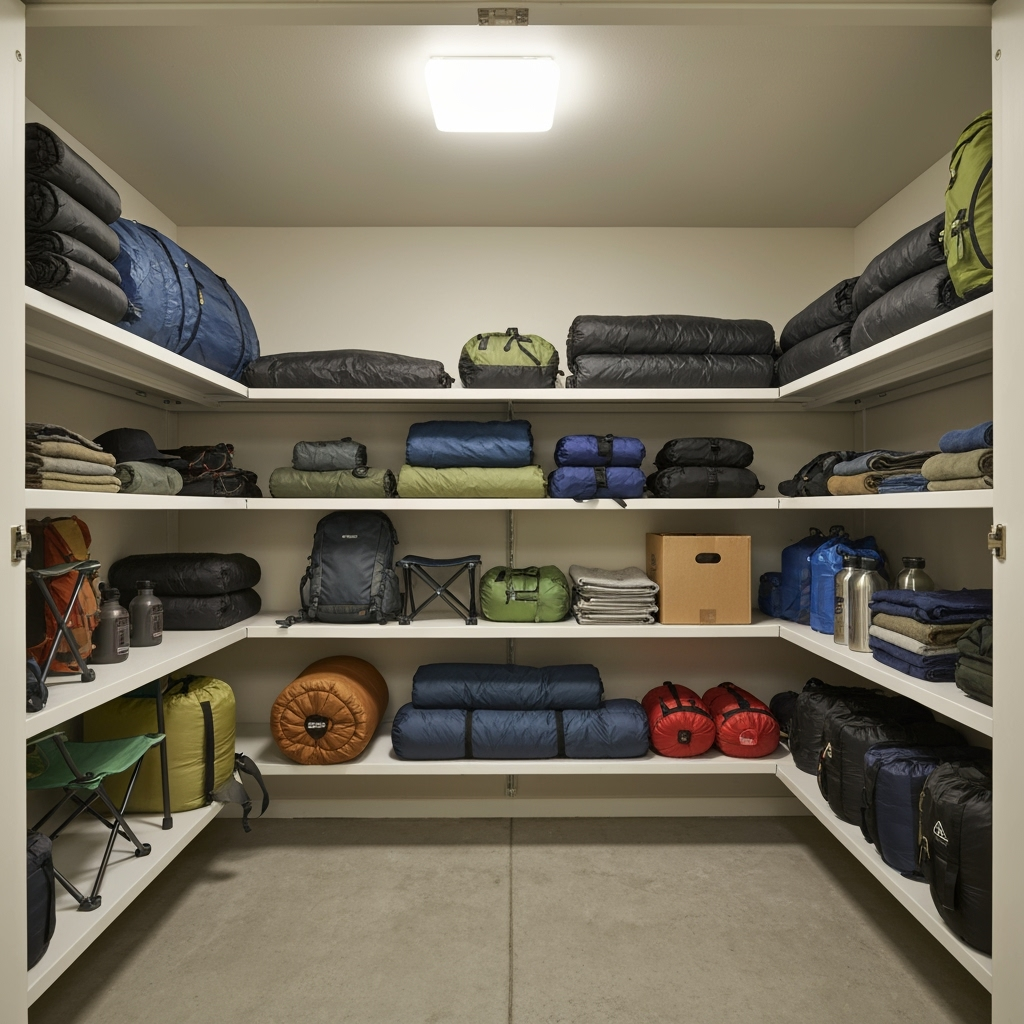
Why Proper Camping Equipment Storage Matters
For outdoor enthusiasts and weekend warriors alike, camping gear represents both a significant investment and a gateway to adventure. But between trips, proper storage is crucial for maintaining your equipment’s condition and extending its lifespan. This comprehensive guide will help you protect your outdoor investments while keeping them organized and ready for your next expedition.
Choosing the Right Storage Solution
While a garage might seem like the obvious choice, it’s not always the best option for expensive camping gear. Temperature fluctuations, humidity, and pests can damage sensitive equipment. Here’s why a climate-controlled storage unit might be your best choice:
- Consistent temperature and humidity levels protect sensitive materials
- Better protection from pests and rodents
- Dedicated space keeps gear organized and accessible
- Reduced wear and tear from extreme weather conditions
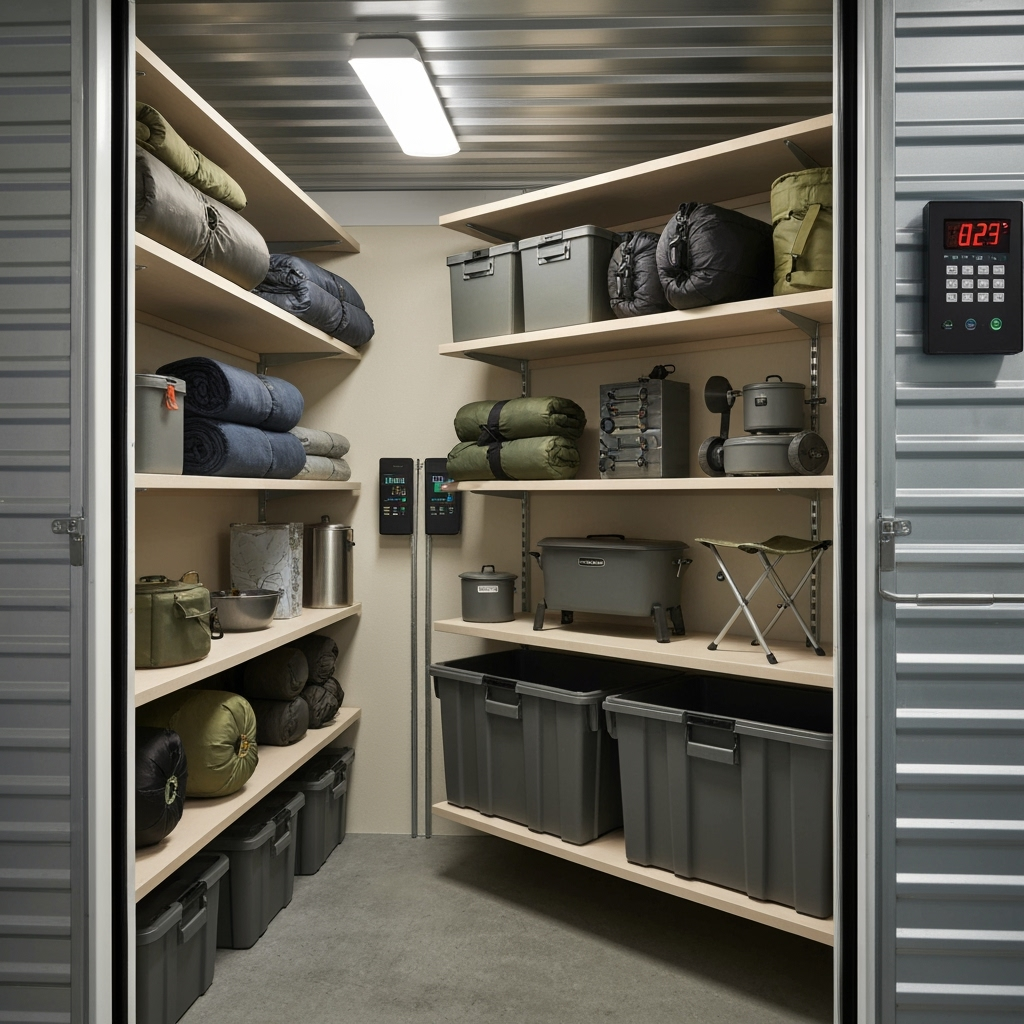
Essential Storage Preparation Steps
Before storing your camping equipment, follow these crucial preparation steps:
1. Clean and Dry Everything Thoroughly
Moisture is your gear’s worst enemy. Clean and completely dry all equipment before storage:
- Wash tents and tarps with appropriate cleaners
- Air dry all fabric items completely
- Clean and dry cooking equipment
- Remove batteries from electronics
2. Inventory and Organize
Create a detailed inventory system:
- Label all storage containers clearly
- Group similar items together
- Keep frequently used items easily accessible
- Create a digital inventory with photos
Storage Solutions by Equipment Type
Tents and Sleeping Bags
Store these items loose or lightly rolled to prevent fabric damage:
- Use breathable storage bags
- Avoid compression sacks for long-term storage
- Keep off concrete floors using pallets or shelving
Backpacks and Bags
Proper storage extends the life of your packs:
- Clean thoroughly before storage
- Stuff with acid-free paper to maintain shape
- Store hanging or upright on shelves
Camping Electronics and Gadgets
Protect sensitive equipment with extra care:
- Remove all batteries
- Store in waterproof containers
- Use silica gel packets to absorb moisture
- Keep original packaging for delicate items
Organizational Tips for Your Storage Unit
Maximize your storage space with these organizational strategies:
- Install sturdy shelving units for better organization
- Use clear plastic bins for easy identification
- Create a map of your storage layout
- Maintain an aisle for easy access to all items
- Store frequently used items near the front
Seasonal Maintenance Checks
Regular maintenance ensures your gear stays in top condition:
- Inspect equipment quarterly for signs of damage
- Check for moisture or pest issues
- Rotate gear positions to prevent permanent creasing
- Update your inventory list as needed
Making the Most of Climate-Controlled Storage
For optimal protection of your camping equipment, consider these climate-controlled storage tips:
- Maintain consistent temperature between 55-80°F
- Keep humidity levels around 55%
- Use a hygrometer to monitor conditions
- Choose a unit size that allows for proper air circulation
Emergency Preparation Tips
Keep your gear ready for spontaneous adventures:
- Create a “grab-and-go” section for essential items
- Maintain a checklist of gear locations
- Keep an emergency repair kit easily accessible
- Store a first-aid kit with your gear
When to Upgrade Your Storage Solution
Consider upgrading your storage solution when:
- Your equipment collection grows significantly
- You invest in more expensive gear
- Current storage shows signs of inadequate protection
- You need better accessibility or organization
Conclusion
Proper storage of your camping equipment is an investment in future adventures. With a climate-controlled storage unit and these organizational strategies, you can protect your gear while keeping it ready for your next outdoor expedition. Visit your local Public Storage facility to find the perfect solution for your camping equipment storage needs.




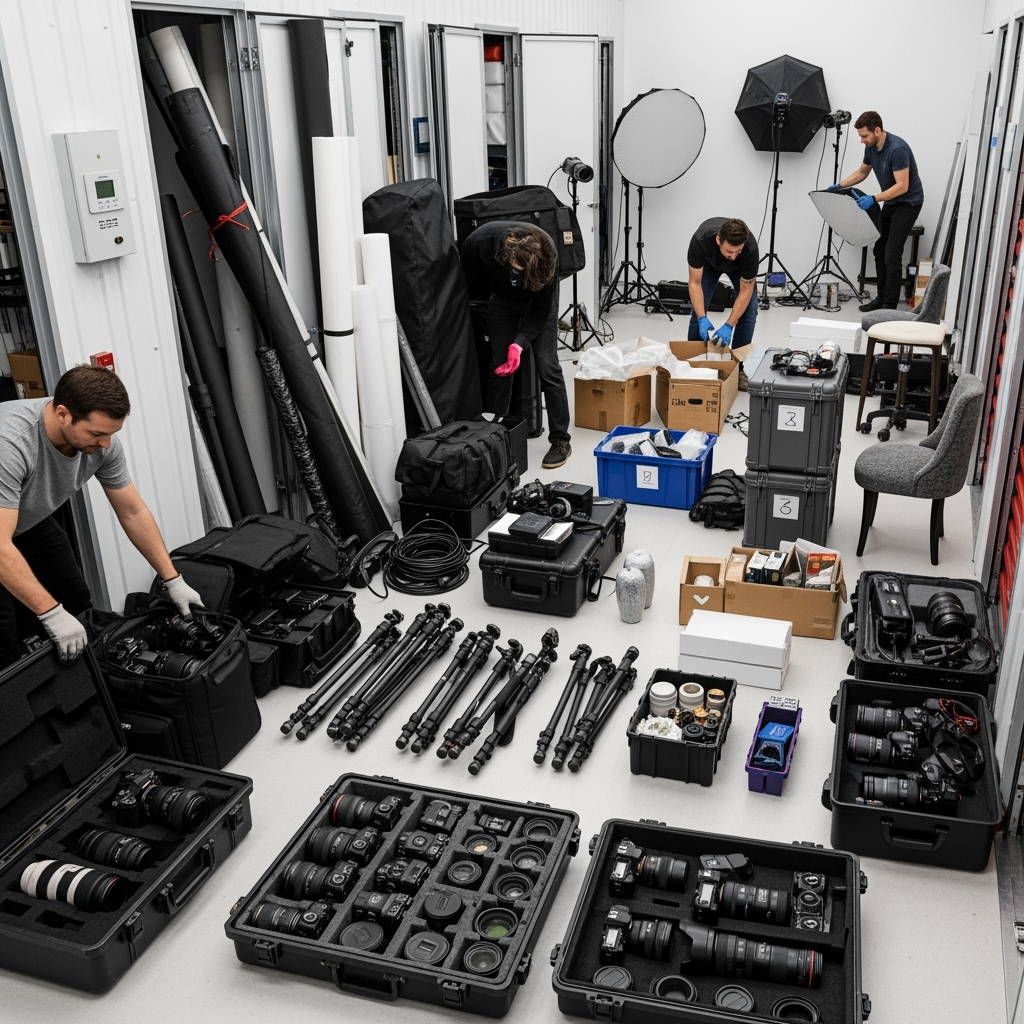
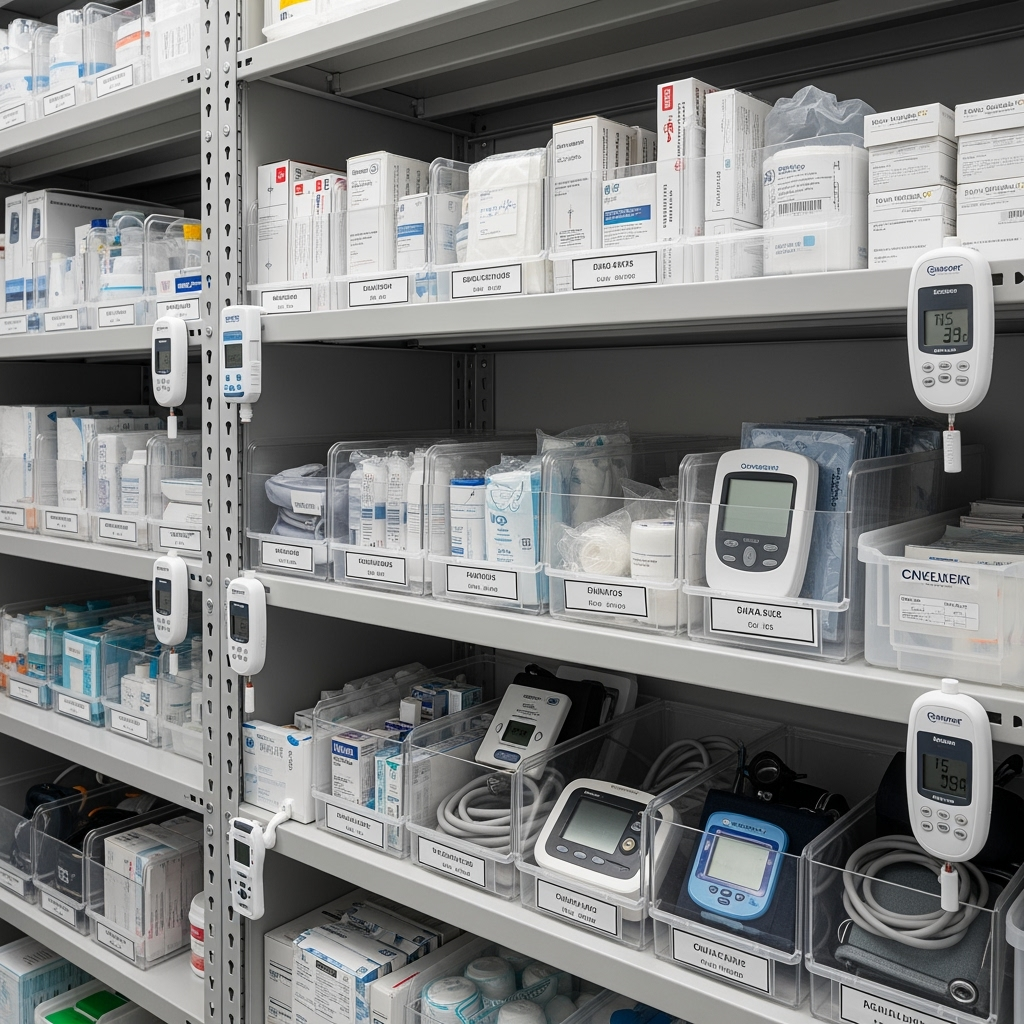
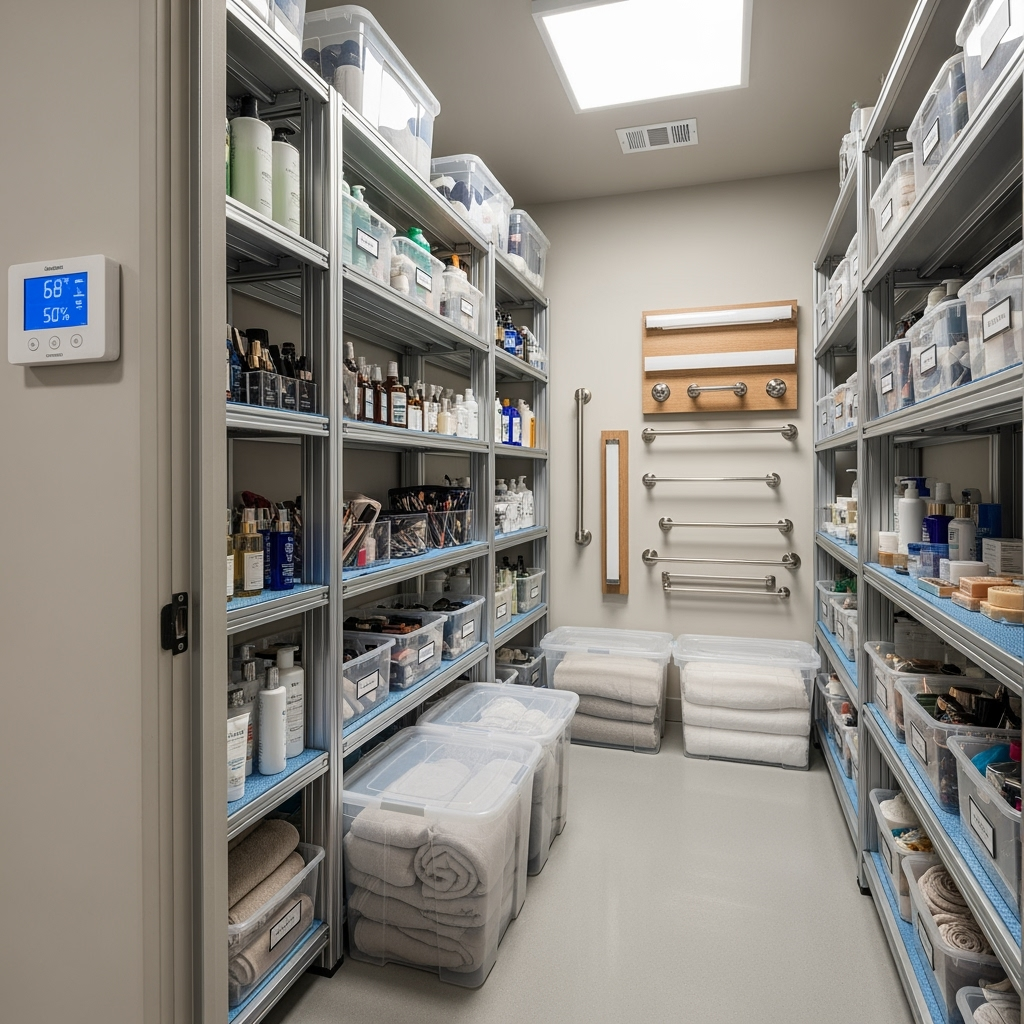
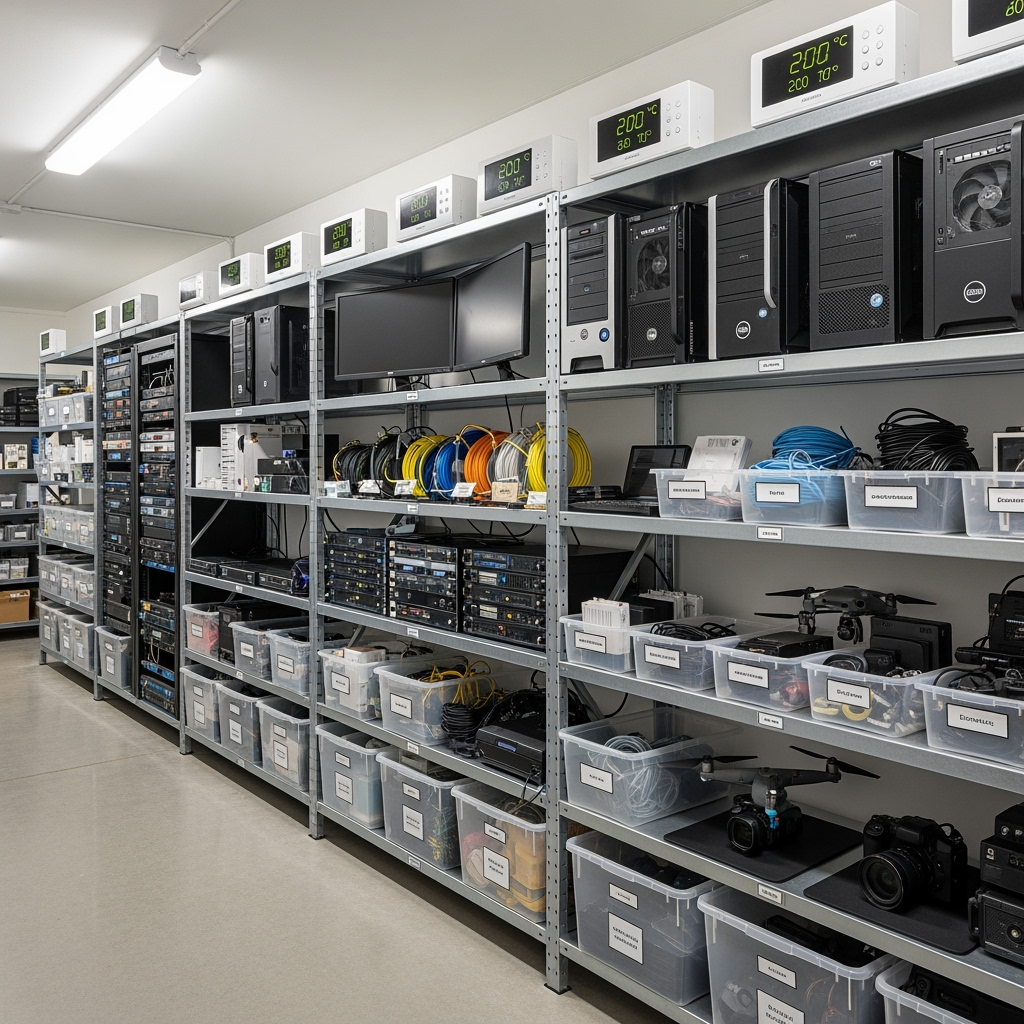
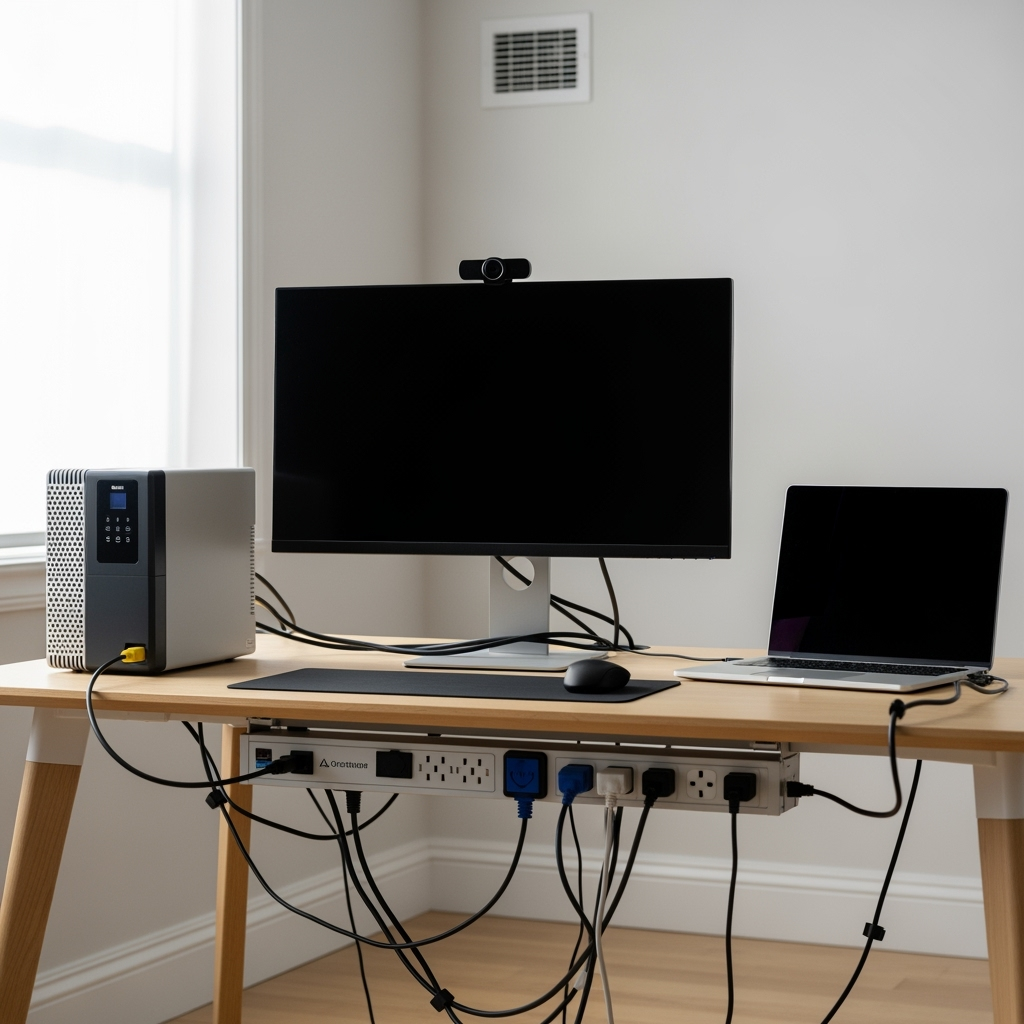
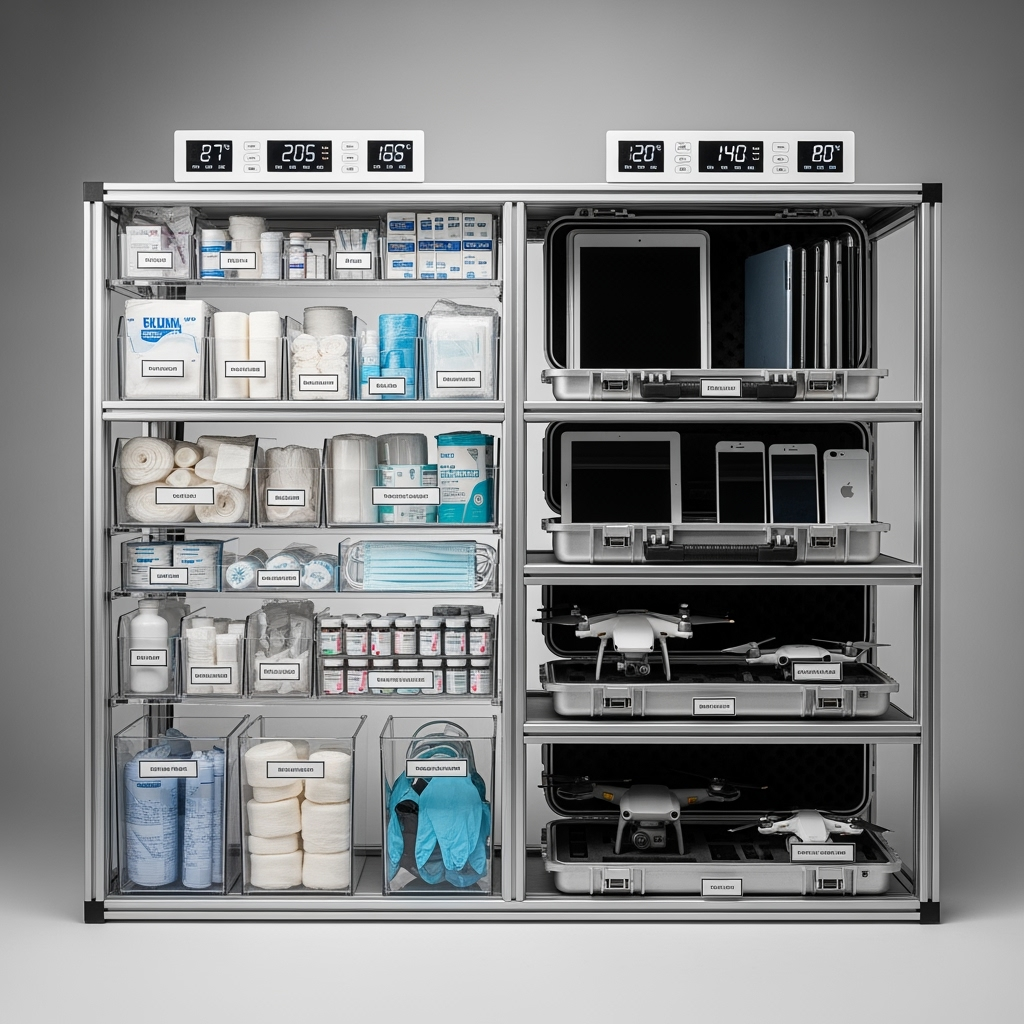
Leave a Reply